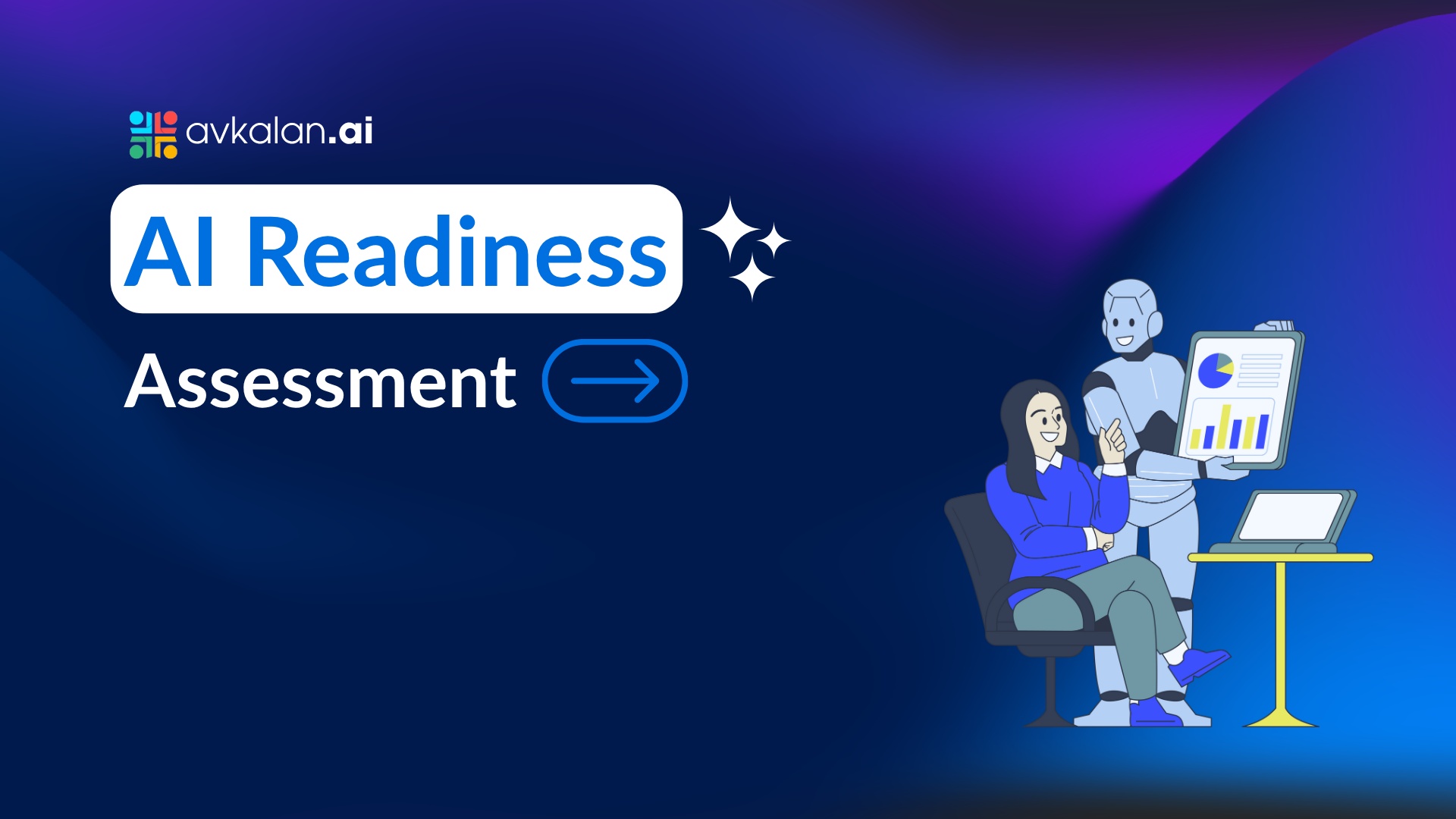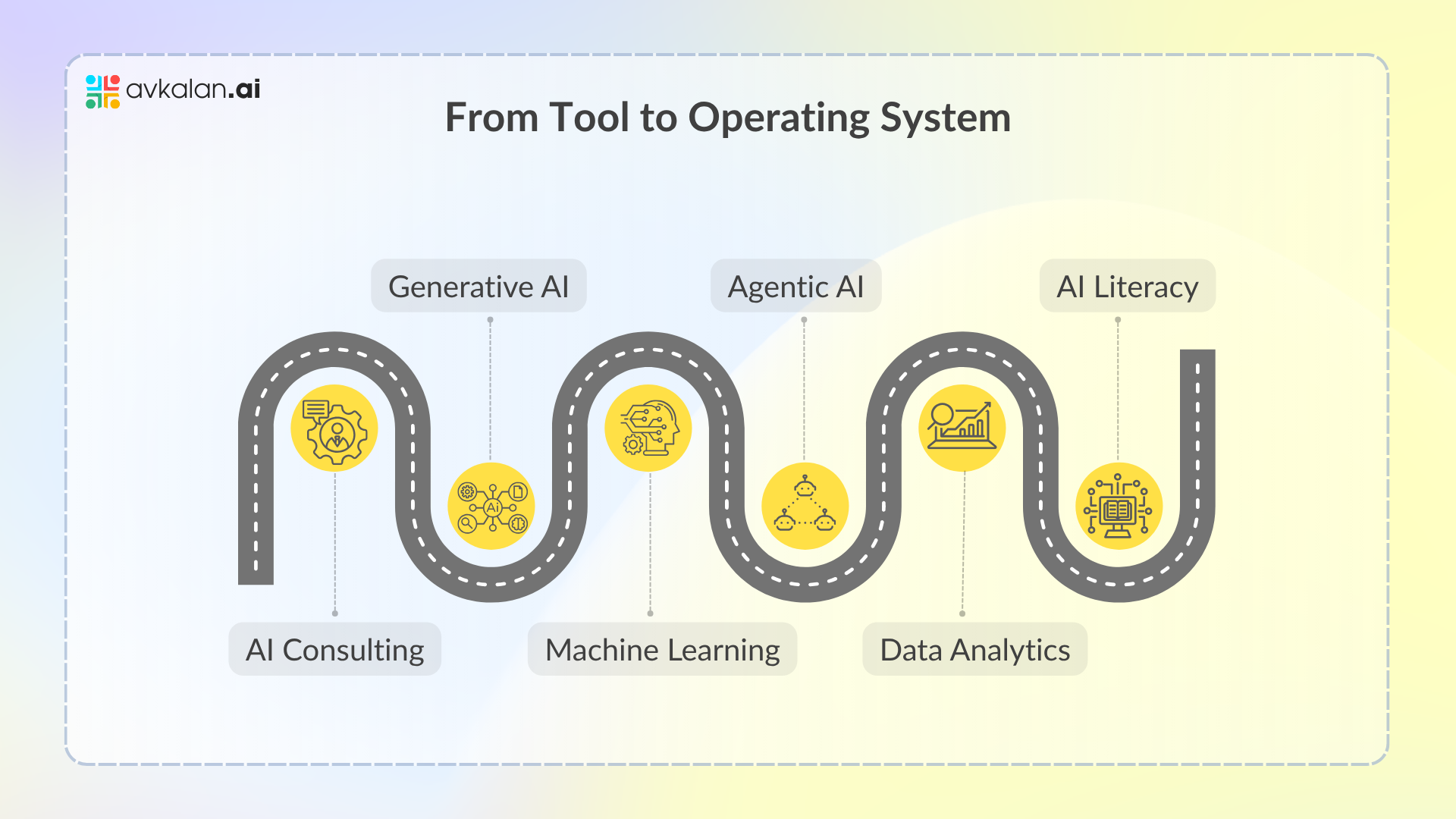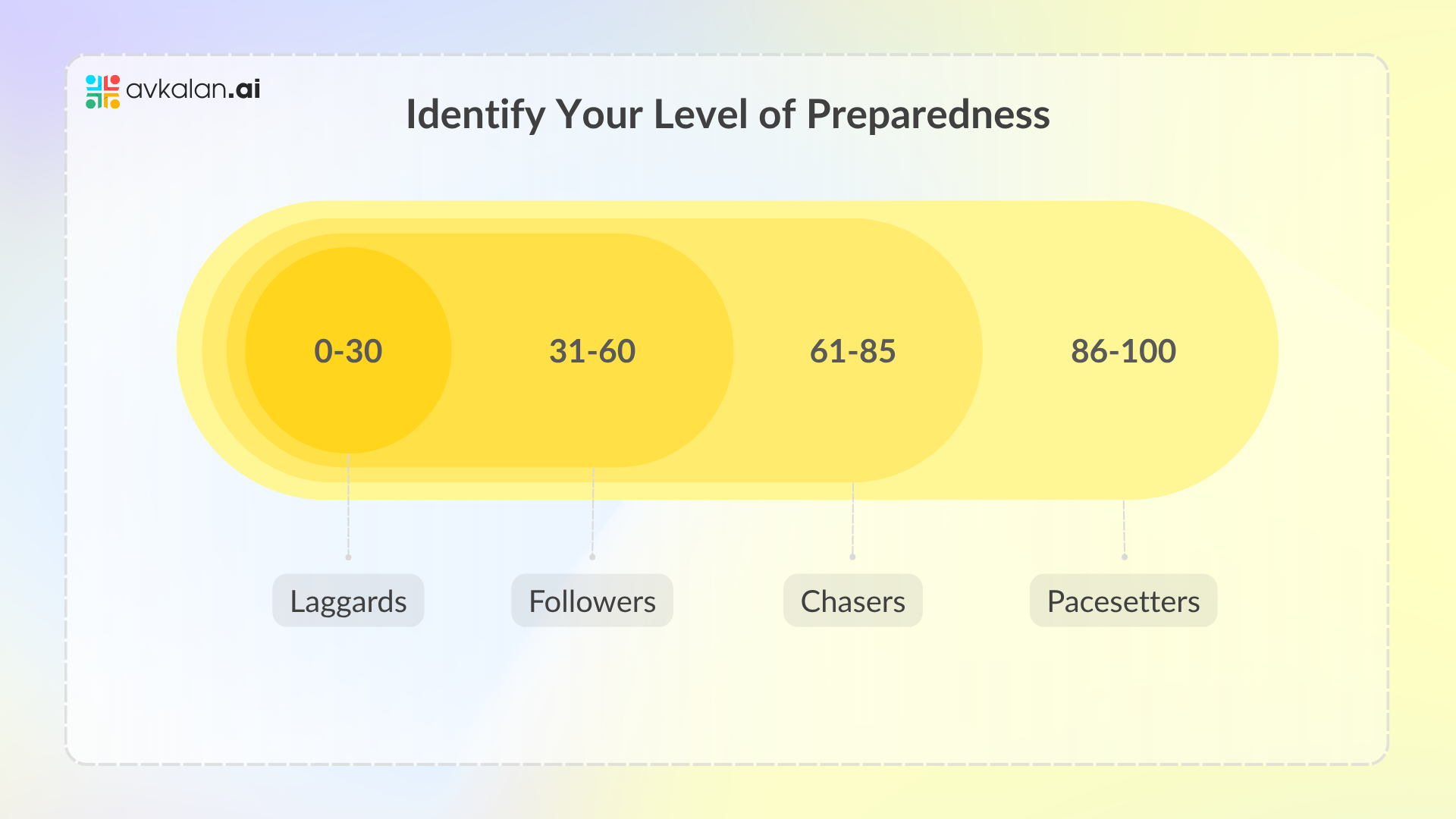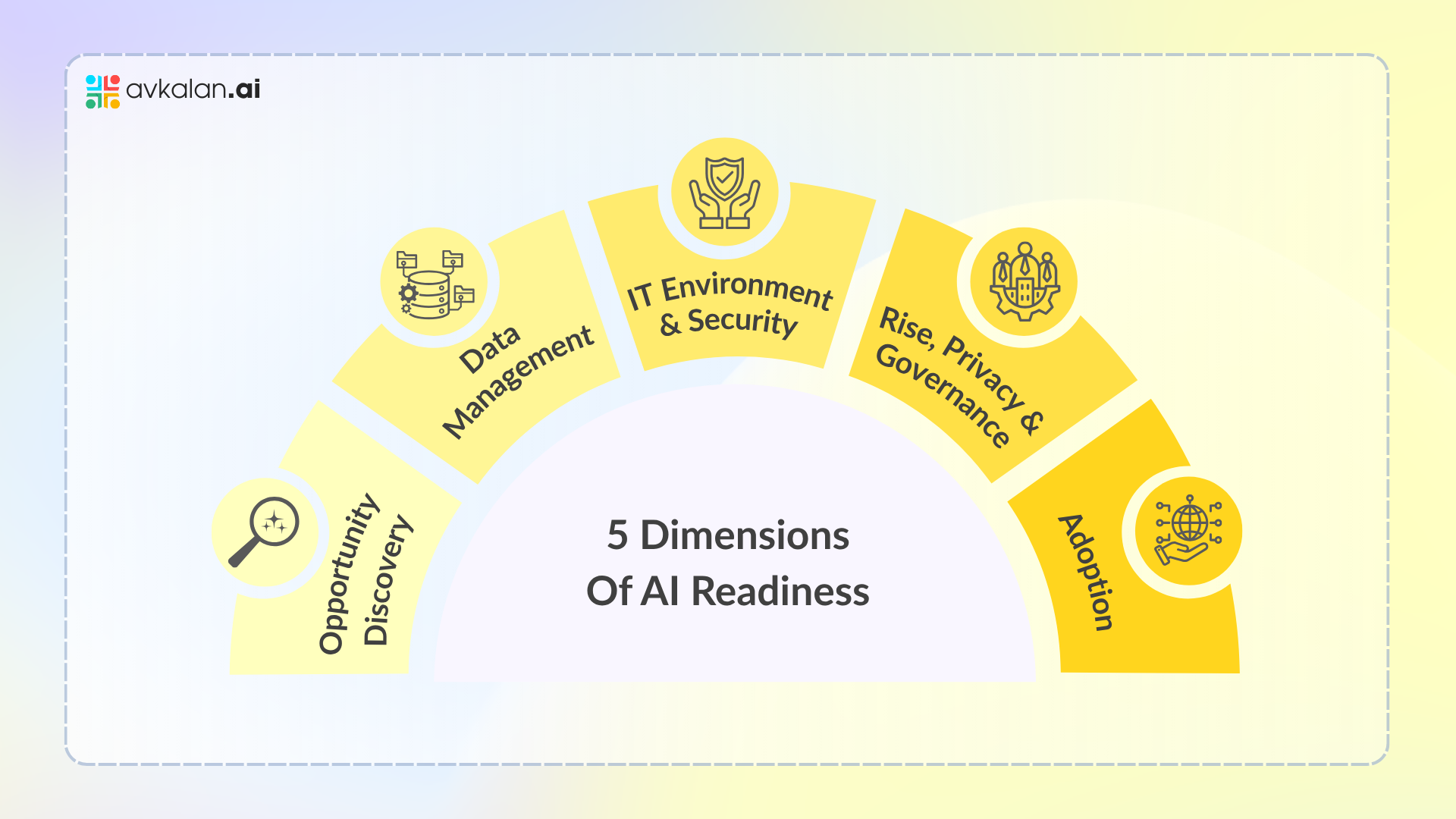
AI Readiness Assessment: AI Readiness Assessment for business evolves from experimental novelty to strategic necessity. Organisations are fundamentally rethinking how to embed artificial intelligence into their core operations. The most successful transformations don’t merely treat AI as a tool—they embrace it as a foundational operating principle. When AI for business automation becomes part of the foundation rather than a feature, it holds the transformative potential to reshape business models, workflows, and outcomes in unprecedented ways.
From Tool to Operating System
An “AI-First” mindset signifies more than technological enthusiasm—it demands a shift in how intelligence is conceptualised and operationalised. Rather than deploying AI in isolation, small and medium-sized enterprises (SMEs) must integrate it as an evolving, central nervous system across their organisations.
When AI is thoughtfully embedded into decision-making frameworks, automation workflows, and augmentation strategies, it generates sustainable and scalable value. This shift is typically powered by a modular, future-ready architecture comprising:

- AI Consulting to ensure strategic alignment with measurable business objectives
- Generative AI to accelerate content creation, design workflows, and customer communication.
- Machine Learning to enable predictive insights and data-driven decisions
- Agentic AI to empower autonomous agents that act and adapt independently.
- Data Analytics to extract actionable intelligence from complex datasets
- AI Literacy to foster organisational buy-in, adoption, and cultural alignment
While each component offers standalone benefits, the most significant impact is achieved when these elements operate together under a unified AI for business strategy.
Beyond Pilot Projects
SMEs often begin their AI journey with isolated pilot programs. However, those that achieve lasting success move from experimentation to execution by shifting focus from specific technologies to tangible business outcomes. Strategic framing, cultural readiness, and process maturity are critical enablers of this evolution.
True AI transformation demands more than technical expertise. It requires:
- Continuous upskilling and AI literacy
- Crystal-clear alignment with business goals
- Sustainable systems that support long-term scaling
An AI-first organisation doesn’t chase every new trend—it builds the infrastructure and culture to make strategic innovations stick.
Readiness for Emerging AI Architectures
The emergence of Large Language Models (LLMs) and Agentic AI marks a new era in business automation—one where systems not only automate tasks but also interpret, reason, and act autonomously with minimal human oversight.
To participate responsibly and effectively in this space, organisations must:
- Implement robust governance models
- Ensure system explainability and ethical integrity.
- Embrace adaptive architectures capable of handling dynamic real-world challenges.
Autonomous systems must be as accountable as they are intelligent, pushing boundaries while respecting ethical and operational safeguards.
Balancing Sector Breadth and Domain Depth
General-purpose AI tools are powerful, but the greatest business impact comes from domain-specific expertise. For instance:
- AI in finance requires precision in risk assessment and fraud detection.
- AI in healthcare demands interpretability and regulatory compliance.
- AI in retail thrives on behavioural insights and demand forecasting.
Understanding these nuances is key. A scalable AI strategy balances horizontal flexibility (across sectors) with vertical specialisation (within domains).
Key Maturity Signals
Organisations genuinely prepared for AI-led transformation often demonstrate the following traits:
- Strategy-driven AI adoption rooted in core business objectives
- Company-wide literacy programs to build an AI-conscious culture
- Integrated governance frameworks for security, compliance, and ethics
- A clear shift from exploration to implementation
- Cross-functional integration of generative AI into daily operations
These signals indicate more than readiness—they reflect leadership in the AI-first era.
Evaluate Your AI Readiness
To become an AI-first organisation, SMEs must evaluate where they currently stand and what it takes to move forward. This includes:
- Assessing current capabilities and identifying key gaps
- Creating a future-state vision aligned with strategic priorities
- Building a roadmap to bridge the divide between today and tomorrow
Success hinges not just on implementing new technologies, but on aligning them with your specific operational realities and strategic vision.
AI Readiness Assessment: Identify Your Level of Preparedness
Take our comprehensive AI Readiness Assessment to discover how well your organisation is positioned for AI-led growth. Based on your score, you’ll fall into one of four readiness levels:

Fully Prepared – Pacesetters
Score: 86–100
Leaders with a mature AI strategy, strong cultural alignment, and system-wide integration.
Moderately Prepared – Chasers
Score: 61–85
Organisations are making strong progress but still maturing in areas like literacy, governance, or scale.
Limited Preparedness – Followers
Score: 31–60
Companies with isolated use cases and limited strategic alignment or infrastructure.
Unprepared – Laggards
Score: 0–30
Businesses are still in early awareness stages with little to no AI adoption or planning.
Your Next Step: Begin the Transformation
The AI-first journey is not a one-time initiative—it’s a continuous evolution. The most successful organisations:
- Maintain strategic focus while adapting to emerging capabilities
- Foster AI literacy and ownership across all teams
- Integrate ethical AI design into every layer of the system.
Where does your organisation stand today? Understanding your level of readiness is the first step toward creating a future-proof AI strategy that delivers long-term value.
Take the AI Readiness Assessment now and start building your custom roadmap to smarter, faster, and more resilient operations—powered by AI.

